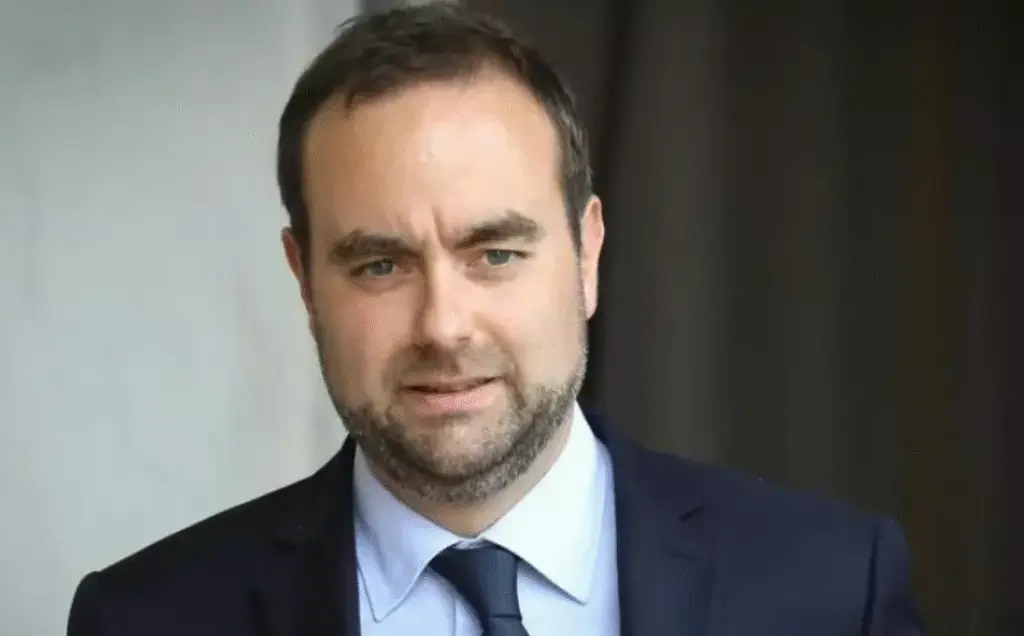Lecornu Takes Over During National Protests
Sebastien Lecornu was officially made prime minister by President Emmanuel Macron. Right away, there were protests against the government all over the country that questioned its authority. His arrival shows how divided French society is becoming, which makes it harder for leaders to stabilize a shaky political situation.
Francois Bayrou, the outgoing prime minister, took part in the handover ceremony, which stressed stability in the face of change. Lecornu takes over a fragile situation that needs quick action to balance governance, the concerns of protesters, and cooperation in Parliament. The situation shows how hard it is for new leaders to gain legitimacy by building consensus and making policies that respond to people’s needs in a tough political climate.

Budget Reform Dominates Upcoming Agenda
Lecornu has until October 7 to send in a draft budget for 2026. He can get an extension until October 13. Reducing the deficit is still a shared goal across the political spectrum, but there is still disagreement about how to make the necessary fiscal changes in a way that lasts.
Even though everyone agrees that something needs to be done quickly, disagreements over taxes and spending cuts make things harder. The far left is against austerity and wants higher taxes on the rich, while conservatives are against taxes altogether. These arguments make it even harder to reach a compromise that is necessary for parliamentary approval, making Lecornu’s already weak political position even weaker.
Rising Threat Of No-Confidence Vote
Hard-left parties are getting ready to file a no-confidence vote against Lecornu’s leadership in order to take advantage of people’s anger over changes to the budget. The threat makes things harder for the government, and the new prime minister has to be very careful about how they balance the needs of the different groups that make up parliament.
The far-right National Rally, on the other hand, says it is willing to work together if certain budget demands are met. Their position shows how things are changing in French politics, where alliances seem to be based on practicality rather than strict ideology. Lecornu’s perceived closeness to the National Rally makes it harder for him to work with moderate allies, which makes his leadership path more difficult.
Recommended Article: Japan Political Crisis Deepens After Ishiba Resigns
The Socialist Party Wants Fair Solutions
Olivier Faure, the leader of the Socialist Party, said he would be open to working with Lecornu if the issues of taxes and social protections are still addressed in a meaningful way. His willingness suggests that limited cooperation might be possible in some situations, but there are still doubts about the government’s fiscal intentions.
But Faure said he was ready to support no-confidence measures if the government doesn’t pay attention to leftist priorities. This shows that cooperation is conditional and that the alliances that make up parliament are weak. If there are no compromises, the support of the Socialists is still up in the air, which makes it less likely that a stable majority will be formed, which is necessary for reforms to work.
Nationwide Protests Disrupt Daily Life
Thousands of people across France protested against proposed budget cuts, expressing their anger at government policies that they felt were out of touch with the needs of everyday people. Strikes, transportation problems, and widespread unrest were all part of the protests, which showed that people were angry with the political establishment for not listening to them.
Eighty thousand police officers were sent out across the country to deal with unrest, which shows how serious the situation was. Protesters and police clashing made things even more tense, showing how unstable things were getting. Protests show that people are very unhappy, which makes it hard for Lecornu to assert his authority in a situation that is already tense.
Macron Still Has Power Behind the Scenes
President Emmanuel Macron is still powerful, directing Lecornu’s early actions while trying to keep his power during the leadership change. Macron got involved personally by calling the Socialist leader to make sure that leftists were not involved in the process of choosing a new prime minister. This was a smart way to strengthen executive control.
These kinds of actions show that Macron is still in charge, but they could also hurt Lecornu’s independence. Observers say that finding a balance between Macron’s power and Lecornu’s independence is a difficult task that affects credibility. Lecornu risks looking weak if he doesn’t establish personal authority, which would make it harder for him to negotiate with parliament or deal with unrest in a way that lasts.
What the Future Holds for French Leadership
Lecornu’s success depends on his ability to bring together a divided parliament, handle nationwide protests, and make real changes to the budget in a short amount of time. To show leadership, you have to make concessions while keeping your budget in check. This is hard because different political groups want different things at the same time.
If everyone agrees, Lecornu may take charge, which would make France’s political situation more stable during a time of upheaval. But failing could make the crisis worse, make the unrest worse, and make the government even less stable. The next few months will be a big test for Lecornu’s leadership. They will have a big impact on the direction of French politics as Macron continues to have an impact.























